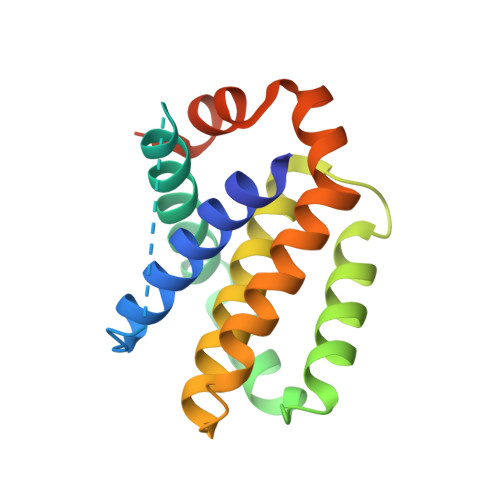Design of Bcl-2 and Bcl-xL Inhibitors with Subnanomolar Binding Affinities Based upon a New Scaffold.
Zhou, H., Chen, J., Meagher, J.L., Yang, C.Y., Aguilar, A., Liu, L., Bai, L., Cong, X., Cai, Q., Fang, X., Stuckey, J.A., Wang, S.(2012) J Med Chem 55: 4664-4682
- PubMed: 22448988
- DOI: https://doi.org/10.1021/jm300178u
- Primary Citation of Related Structures:
3SPF - PubMed Abstract:
Employing a structure-based strategy, we have designed a new class of potent small-molecule inhibitors of the anti-apoptotic proteins Bcl-2 and Bcl-xL. An initial lead compound with a new scaffold was designed based upon the crystal structure of Bcl-xL and U.S. Food and Drug Administration (FDA) approved drugs and was found to have an affinity of 100 ¦̀M for both Bcl-2 and Bcl-xL. Linking this weak lead to another weak-affinity fragment derived from Abbott's ABT-737 led to an improvement of the binding affinity by a factor of >10 000. Further optimization ultimately yielded compounds with subnanomolar binding affinities for both Bcl-2 and Bcl-xL and potent cellular activity. The best compound (21) binds to Bcl-xL and Bcl-2 with K(i) < 1 nM, inhibits cell growth in the H146 and H1417 small-cell lung cancer cell lines with IC(50) values of 60-90 nM, and induces robust cell death in the H146 cancer cell line at 30-100 nM.
Organizational Affiliation:
Comprehensive Cancer Center and Department of Internal Medicine, University of Michigan , 1500 East Medical Center Drive, Ann Arbor, Michigan 48109-0934, United States.
















